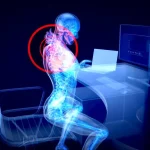Eating disorders are complex in nature. On that account, treatment has to be approached from many aspects. Personal nutrition often stands out as one of the most vital elements of effective treatment. A tailored nutrition plan can attend to unique physical and psychological requirements for recovery and healthy living. Individuals can start a step on the road to recovery respecting not only personal health goals but also dietary needs with the help of professionals such as an eating disorder nutritionist or an NDIS dietitian.
Why Nutrition Matters
Physical Recovery
Malnutrition has been shown to have long-range effects on the body, among them brittle bones, organ damage, and disruption of electrolytes. Individualised nutrition plans are established to ‘restock and rebuild’ nutrient stores to assist the body in the repair and healing process.
Psychological Interventions
Nutrition is part of mental health. A healthy diet, for instance, helps patients become happy, non-anxious, and of better cognitive abilities, all things that patients with eating disorders commonly lack.
Restoring a Healthy Relationship with Food
Recovery is the rebuilding and changing of a patient’s perception regarding food and eating. A patient will be guided to have healthier habits with a nutrition prescription that will help heal and change a better attitude toward meals.
What is Personalised Nutrition?
Personalised nutrition is established for unique diets with interventions tailored to an individual’s needs, preferences, and medical conditions that will allow for their healing and recovery. It includes:
- Nutrient deficiencies
- Caloric needs by weight to reach a goal
- Food preferences and tolerances
- Medical history or physical health
- Psychological and emotional relation with food
Role of an Eating Disorder Nutritionist
An eating disorder nutritionist is an expert whose specialised function is planning individual personal nutrition to help persons with eating disorders. Consequently, they do not only advise on diet but also continuously support them, monitor their progress, and change the plans to recover their needs.
Role of NDIS Dietitian
For instance, a dietitian working under an NDIS is one, and their support is uniquely tailored to the needs of a person with disabilities who are on an NDIS. Other than the focus on an eating disorder, such professionals consider other health conditions or disabilities that might be involved in a process of nutrition needs.
Benefits of Personalised Nutrition in Eating Disorder Treatment
Nutritional Support Tailored
Customised diet plans address inadequacies in certain nutrients and caloric needs. For example, some anorexia patients would require a diet that could help in increasing calorie consumption to achieve better weight regain, while others with binge eating disorder require specific means of controlling portion control and the urge to consume.
Adaptive Diet Plans
Individual nutrition is flexible. It accords with the preferences of the clientele and their capabilities in consuming food. Like, for example, in the case of recovering from eating disorders, rigid diet plans can provoke anxiety or resistance.
Monitoring Results
Usually, through regular sessions with a dietitian or nutritionist, nutritional requirements are met. Adjustments are made if there are setbacks in order to achieve steady progress in recovery.
Management of Other Conditions
Eating disorders tend to present with other medical or psychological conditions such as depression, anxiety, or gastrointestinal issues. Personalised nutrition plans take all these into consideration as well in giving full care.
Empowerment Through Education
An experienced NDIS dietitian educates patients on the functions of nutrients in the body, making them make appropriate food choices. This enables the attainment of confidence and independence in the course of managing their diet after leaving the treatment centre.
Challenges associated with Personalised Nutrition
More still, although there are considerable merits gained from personalised nutrition, having it incorporated into the treatment process of eating disorders has its challenges:
Resistant to Change: Most patients with the eating disorders have a lot of fear and anxiety related to the food.
Cultural and Social Factors: There is so much diversity across the globe in the interest of diets and attitudes towards food.
A lack of finance: Access to such private care can be very costly to some, such as seeing an NDIS dietitian or an eating disorder nutritionist.
Indeed, even though it may be tough to get started with personalised nutrition for recovery, the long-term payoffs far outweigh such trying efforts.
Integrating Nutrition into a Holistic Treatment Plan
There is multidisciplinary treatment for eating disorders. Among the treatments to be included are therapy and medical monitoring combined with the plan of tailored nutrition. In most cases, a dietitian, therapist, and health care provider coordinate with each other in ensuring that the patient receives full care.
Collaborative Care Team
Dietitians and Nutritionists
They design and follow-up on the individualised eating plans. One effective strategy that has shown promise in aiding the recovery of individuals with eating disorders is working with local experts who understand unique regional dietary considerations. Accessing nutritionists in Chicago allows clients to benefit from personalized plans crafted by knowledgeable professionals familiar with the local community’s lifestyle and resources, promoting long-term successful adaptation and management strategies.
Therapists
They work through psychological aspects of eating disorders, including body image concerns and other distorted thinking patterns.
Medical Professionals
They monitor physical conditions and treat complications due to malnutrition.
Final Thoughts
Personalised nutrition is another critical feature of effective treatment of eating disorders. Essentially, a person will be seen and treated by an expert, such as an eating disorder nutritionist or NDIS dietitian. Such a person will be advised based on his or her individual need for physical and mental recovery. A person suffering from an eating disorder can develop a healthier relationship with food with appropriate guidance, ensuring that the rest of his or her life is spent successfully on the recovery path.







